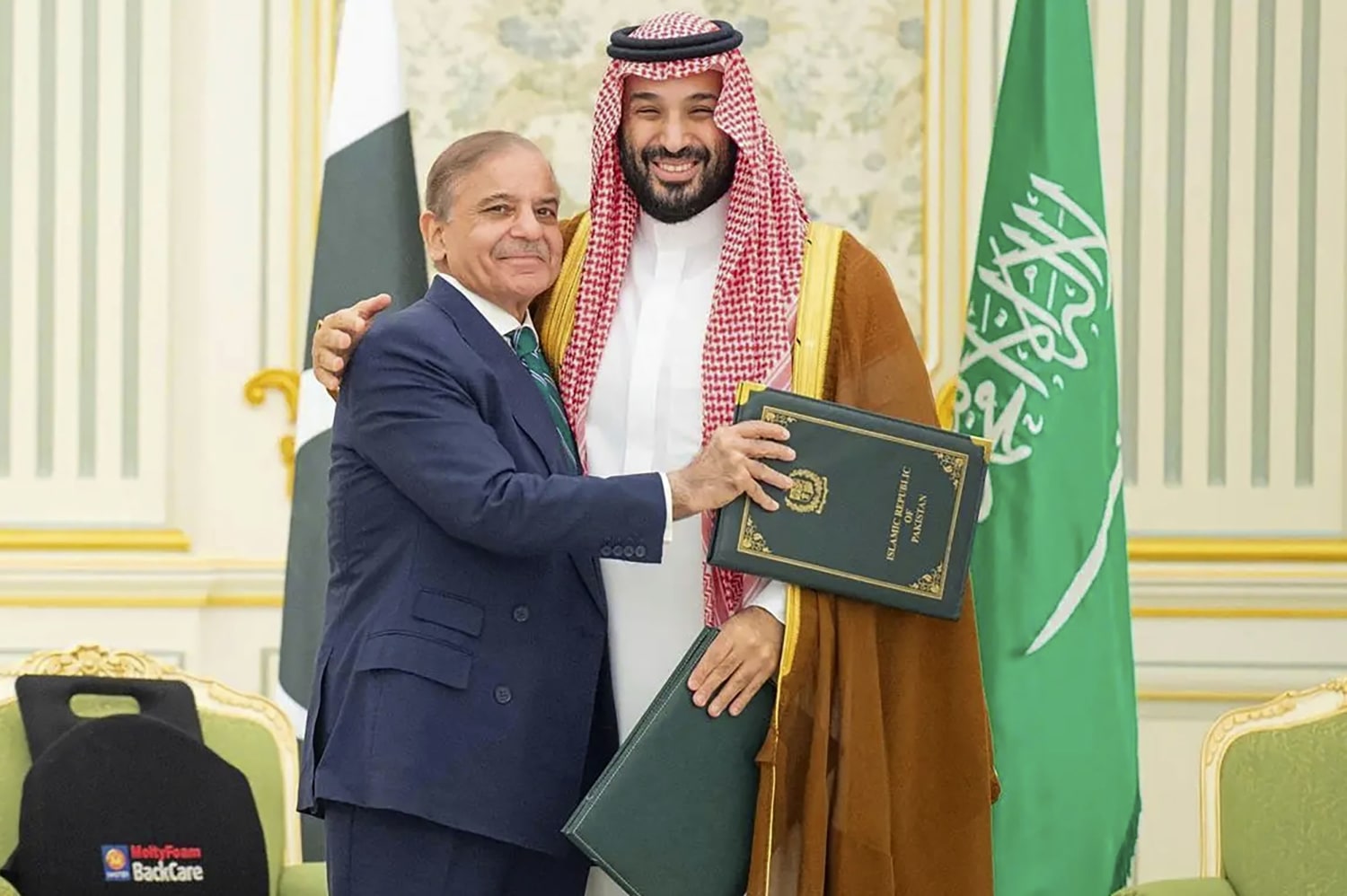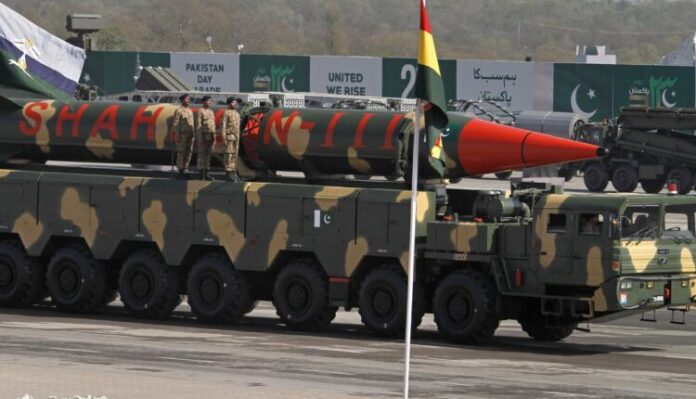In a historic development, Pakistan has officially confirmed that its nuclear capabilities will be available to Saudi Arabia under a newly signed mutual defense agreement. The move signals a major shift in regional security dynamics and highlights growing concerns among Gulf nations about their traditional security partnerships.
Pakistan Confirms Nuclear Umbrella for Riyadh

Pakistan’s Defense Minister Khawaja Mohammad Asif revealed late Thursday that Islamabad is ready to extend its nuclear deterrence to Saudi Arabia if required. Speaking to Geo TV, Asif stated, “What we have, and the capabilities we possess, will be made available to [Saudi Arabia] according to this agreement.”
The statement marks the first explicit acknowledgment of a “nuclear umbrella” arrangement between the two countries. Asif stressed that the arrangement is entirely defensive in nature and reiterated Pakistan’s status as a responsible nuclear power.
Signing of the Strategic Mutual Defense Agreement
The confirmation follows the signing of the Strategic Mutual Defense Agreement in Riyadh on Wednesday. The pact was formalized by Pakistani Prime Minister Shehbaz Sharif and Saudi Crown Prince Mohammed bin Salman.
According to official statements, the agreement commits both nations to treat an attack on one as an attack on both, effectively aligning their security policies. This pact formalizes decades of military cooperation, as Pakistan has historically maintained between 1,500 and 2,000 troops stationed in Saudi Arabia for training, advisory, and security roles.
Regional Tensions Following Israeli Strike
The timing of the announcement appears significant, coming just over a week after an unprecedented Israeli airstrike in Qatar’s capital, Doha, on September 9. The operation, which reportedly targeted Hamas leaders during ceasefire negotiations, killed five Hamas members and one Qatari security officer but failed to eliminate its key targets.
According to reports from The New York Times, Israel deployed eight F-15 and four F-35 fighter jets, launching missiles from over the Red Sea in what is considered its first direct strike on a Gulf Cooperation Council (GCC) state. The attack has shocked Gulf capitals and raised serious questions about Washington’s ability to deter aggression in the region.
Pakistan’s Nuclear Capabilities

Pakistan is currently believed to possess around 170 nuclear warheads, closely matching India’s estimated 172 warheads, according to the Bulletin of the Atomic Scientists. Islamabad developed its nuclear arsenal primarily as a deterrent against India, with which it has fought several wars.
Defense Minister Asif emphasized that Pakistan’s nuclear program remains under strict control and is intended for deterrence purposes only. He reassured that any sharing of nuclear capabilities with Saudi Arabia would be strictly within the framework of defensive security.
Erosion of Confidence in U.S. Security Guarantees
Analysts interpret this Saudi-Pakistani pact as evidence of a gradual erosion of trust in the United States as the principal guarantor of Gulf security. The Los Angeles Times reported that many Gulf nations have begun to question the reliability of their decades-long security arrangements with Washington, especially after Israel’s Qatar operation went unchallenged.
Hussein Ibish of the Arab Gulf States Institute told the paper, “The message to the region appears to be, ‘If you think close ties with and major military support for Washington provides protection… think again.’”
Comprehensive Defense Cooperation
A senior Saudi official told Reuters that the new agreement empowers both nations to use “all military means deemed necessary depending on the specific threat.” This includes intelligence sharing, joint exercises, and enhanced coordination between their armed forces.
Security experts believe that this move could significantly reshape the balance of power in the Middle East, as it effectively provides Saudi Arabia with access to nuclear deterrence without having to develop its own nuclear arsenal.
Strategic Implications
This agreement is likely to send strong signals to both regional adversaries and global powers. For Israel, it underscores the potential risks of expanding its military operations into the Gulf. For the United States, it serves as a wake-up call that its traditional allies may now be seeking alternative security guarantees.
The pact also strengthens Pakistan’s strategic partnership with Riyadh, potentially unlocking new economic and defense cooperation opportunities. Observers suggest that the deal could pave the way for further joint initiatives in counterterrorism, defense technology, and energy security.
Sources: Reuters

